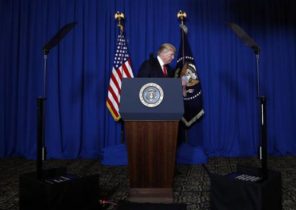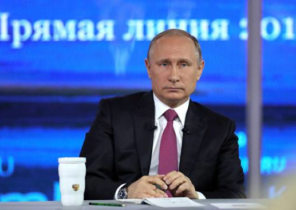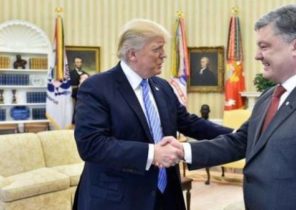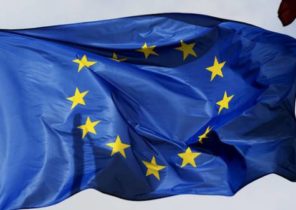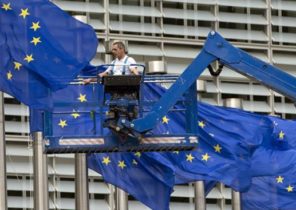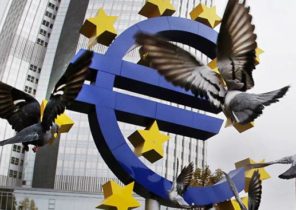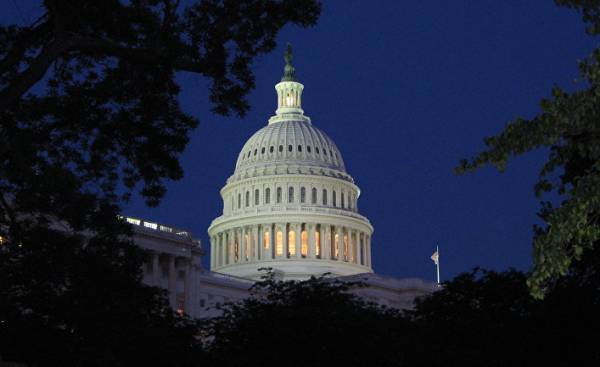
US do themselves. Who else has the time to think about the complexity of the world, when Donald trump is sitting in the White house, and much evidence that he got there not without help?
Both Democrats and Republicans see the Russian attempts to influence U.S. elections in 2016 exactly what they are and represent: strike at the heart of the American state. Therefore, the US House of representatives has adopted with an overwhelming majority a new and highly significant sanctions against Russia.
The concern is that these sanctions were not consistent with traditional U.S. allies and do not take into account their interests. From trump anything else and don’t expect, but Democrats and Republicans are all the same.
Target — privatization
This law, about 70 pages to read in some parts as a Declaration of Russia’s economic war. Firms that contribute to the construction or preservation of Russian pipelines should be punished. This would affect not only Russian energy exports to Europe, which until recently accounted for 50% of Russian state budget, but many European energy companies.
Also sanctions threaten “investments in the privatization of state property of the Russian Federation or promotion” if the Russian authorities would be able to benefit from it. Every Western firm economic control in the future should think twice if it has the right to order the audit for sale of state concern.
And liberal economic experts of the East and West for many years demand: privatization. Ultimately the Kremlin for many years taken control of more and more companies and entire sectors of the economy. The expanding state economy inhibits private enterprise, prevent innovation, and thereby the development of politically independent entrepreneurship.
Sanctions the United States has now caused collateral damage. This includes the already damaged German-American relations. Over one third of gas to Germany for many decades, coming from Russia. Even German Chancellor Angela Merkel (CDU), which hardly can be suspected of friendly feelings toward Putin, protesting against the passage in which Democrats and Republicans took in the sights of the planned German-Russian gas pipeline Nord stream — 2 — only in order to say in the next paragraph that we need “to give primacy to the export of American energy to create in America the jobs.”
It means America First.
US sanctions aims to force Russia to its knees economically. The powers that be in Washington do not realize the crucial role of mechanisms of Russian politics. If the Russians have the impression that foreign countries putting pressure on their homeland, they are likely to rally around their President, even if they are critical of him in the area of domestic policy. This phenomenon is a Moscow sociologist and economist Mikhail Dmitriev called “defensive patriotism”.
For Putin, the risk is on poverty and welfare
The question is also whether it would be in America’s interest, if sanctions have plunged Russia into a deep crisis. Past experience suggests otherwise: in the ten years after Putin came to power, Russia’s GDP grew almost eight-fold. At the time he first formed a civil middle class, especially in large cities.
In 2011 and 2012, Putin’s popularity, according to polls, for the first time has dropped significantly — although the economic indicators and average wages were higher than ever before.
At that time in Moscow and St. Petersburg protested only that the developing middle class. Millions of Russians had then the opportunity to think about new goals, since their financial well-being seemed to be finally secured. They often spoke during interviews, how they are fed up with mossy in politics, poor education system, a lie on TV. Growing wealth and becoming more emancipated population, and poverty are not the Putin risk.
The logic of crime and punishment, the sanctions could be understood. But smart they are not. If this law comes into force, the position in Moscow’s hardliners around Putin will become even stronger. They have for many years advocated political and economic decoupling from the West. More precisely, from the end of 2011 and early 2012, when Putin’s popularity in the polls fell.
